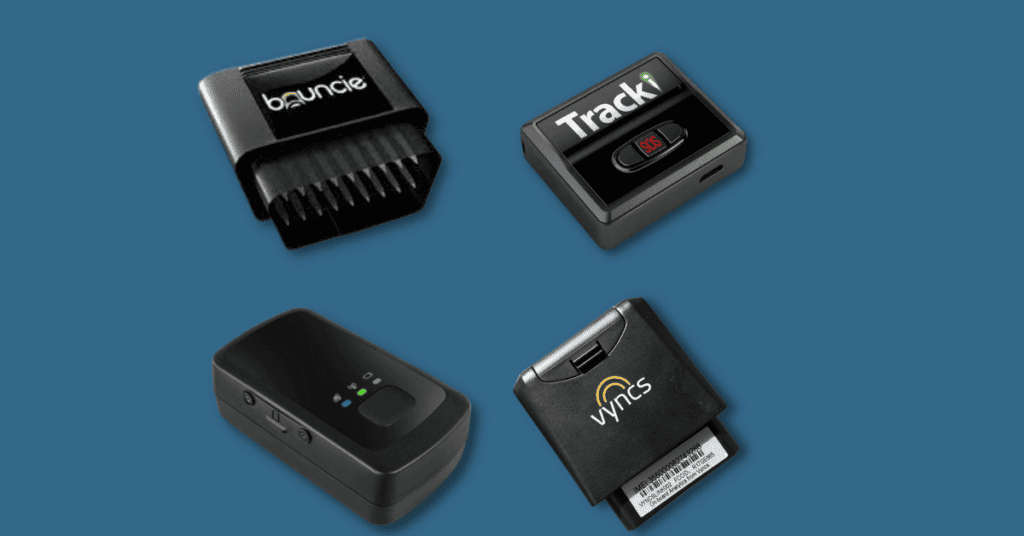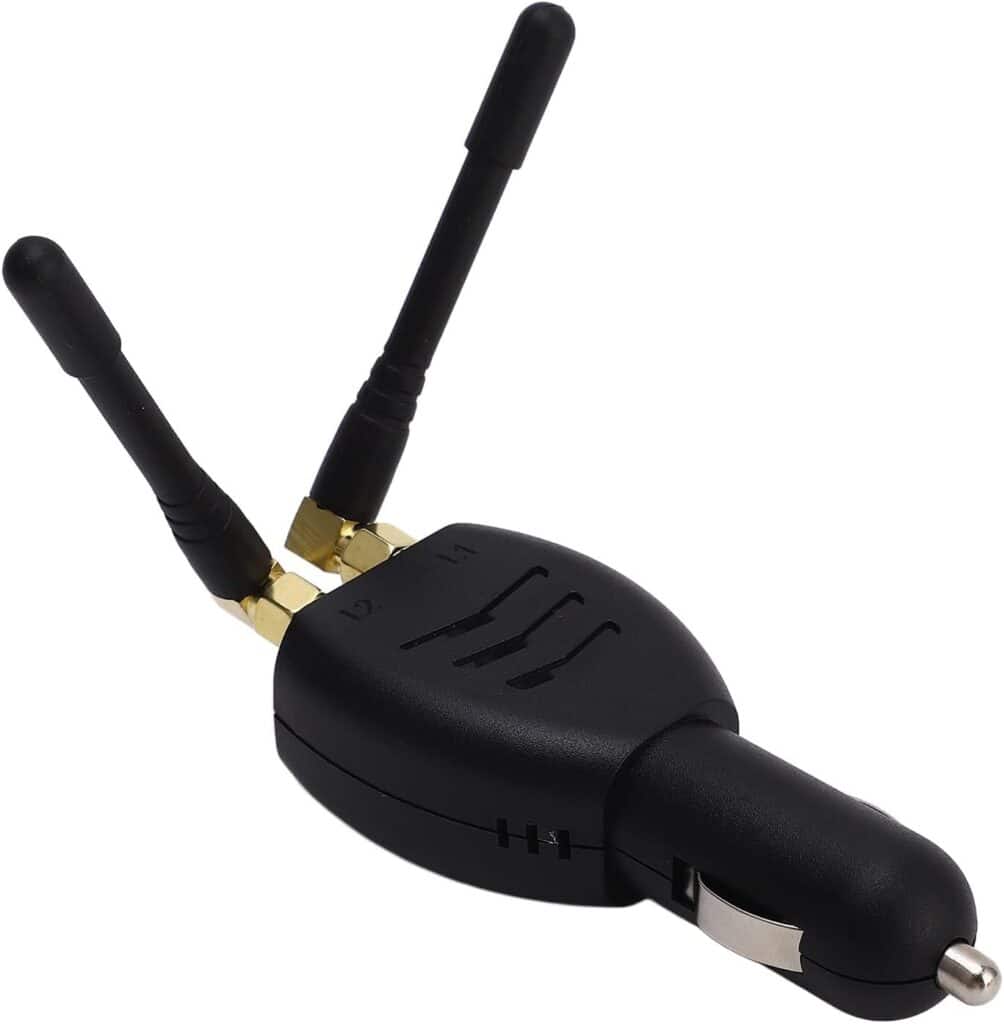The global positioning system (GPS) is an indispensable aspect of modern developments in the transportation industry. From education to the automobile industry, GPS has extended its benefits far and wide.
The satellite-based technology has proven its relevance in smart navigation and improving a fleet’s operational efficiency.
In various circumstances, car owners consider disabling a vehicle’s GPS tracking. Such situations include updating the tracking system or removing an unwanted tracker from the car.
Types of GPS Used for Vehicle Tracking

Tracking vehicles and their drivers are crucial when you function on a tight schedule and aim to reach a destination within a stipulated time. In several other cases, business professionals use GPS trackers to improve work efficiency and productivity and maintain an organized record of bills and vouchers.
Major companies across industries like retail, plumbing, cleaning, and catering personnel install GPS tracking devices in their company vehicles to monitor their employees’ movement.
Also, team managers can supervise the efficiency of the company vehicle and its equipment, even when the driver isn’t communicating correctly.
There are three types of vehicle GPS trackers available in the market:
1. Passive GPS Tracker
Passive GPS devices for vehicles are also called data loggers. It’s because the GPS tracking device continuously collects data about the vehicle’s speed, the status of the equipment, the condition of the goods and products, and the number of times the truck or car stopped to make deliveries.
The tracking device stores the data through a USB cable or memory card, thus, making the data unavailable for real-time use.
Later on, service managers can download the data and study it to understand how the journey went or the driver’s behavior. This data allows them to make intelligent vehicle maintenance and surveillance decisions. People from the construction business and fleet management industry will benefit from using such GPS tracker types.
A passive GPS tracking device uses a satellite-based navigation system to track vehicle details and provide important location-based notifications. Moreover, the GPS tracking device combines with a data logger that stores the information and enables authorities to make sensible decisions on asset availability and maintenance requirements.
Every passive tracking device has geo-fencing capabilities, rechargeable batteries, and longer battery life. However, these tracking devices do not provide real-time readings. Therefore, the fleet manager must check the data log at a definite interval.
All in all, it’s a cost-effective tracking solution that doesn’t require monthly charging.
2. Semi-Passive GPS Tracker
Unlike passive and active GPS trackers, semi-passive GPS trackers are more sensitive. Such devices send out a signal, and the management team of an industry or the operator can catch the signal from anywhere in the world. However, unlike other GPS device types, the semi-passive tracking system signal lasts only a few seconds.
Though it lasts only a split second, semi-passive tracking signals are strong. But tracing the vehicle and its driver will be difficult using such devices. Many professionals suggest operators use two trackers on the same device to spot the loaded truck or a personal car and its drivers.
3. Active GPS Tracker

A typical GPS tracker is known to people as an active positioning system. Unlike passive GPS tracking devices, active trackers send real-time location signals.
The operator can track this device from anywhere in the world. Remember, the active tracker records the data and uses cellular wireless connectivity to transmit this data to the operator’s phone.
Such a GPS tracking device keeps records of your fleet, assets, and equipment and alerts you against potential dangers. Besides real-time viewing, these devices have various features, like mobile tracking, maintenance alerts, analytics, landmarks and geofences, and trigger-based warnings.
That’s why most industry professionals look for real-time active trackers, which are essential for security reasons. Team operators don’t have to wait until the data is ready to be downloaded to understand the fleet status and decide its future.
Like any other tracking device, an active tracker uses satellite communication to locate vehicles and their driver and relay the real-time information to the operator.
Such a vehicle tracking device requires a process known as trilateration to calculate the position information and send it to a central tracking portal. This procedure allows industry managers to supervise vehicle positions and maintenance and streamline productivity.
How Will You Know If Your Vehicle Has A GPS Tracker Installed?
The thought of someone installing a GPS in your car can be unsettling. However, disabling the vehicle GPS tracker can be easy if you detect it.
Check the following vehicle body parts, and you’ll know if your vehicle has a tracker installed or not.
1. Wheel

Wheels are a common site where anyone can hide a GPS. It’s a discreet location where none can easily detect a tracker. Generally, magnet GPS trackers are used to attach to a vehicle wheel.
2. Dashboard
A dashboard is another prominent place where someone can attach a vehicle tracker. A wired-in GPS is mainly installed in the dashboard. So thoroughly look for additional thick wires and electric tapes.
3. Bumpers

The perpetrator can install a GPS at the front and back side of the car bumpers. Since these two sites contain an intricate network of wires, you may want a mechanic to help you check. That’s because if you pull the wrong wire, it can disrupt the car’s power supply.
4. Undercarriage
Check under the car with a flashlight. However, there’s a little chance that the tracker would work in the undercarriage with the metal blocking the signals.
How To Disable Vehicle GPS Tracker?
Disabling the vehicle GPS tracker is an easy 5-step process that you can handle without professional help. Here they are:
- Step 1: Locate the GPS tracker: Modern GPS tracking devices don’t have a wiring system and usually have an in-built battery system. Thus, locating the GPS tracking device in the car becomes challenging. Look for a small box that possibly has a magnetic characteristic that easily attaches to the vehicle body. Given the tracking device’s small size and flexible attaching mechanism, the perpetrator can hide them in most rare spaces. Therefore, look beneath the seat, around the wheel, and in the chassis.
- Step 2: Find a GPS Detector Device: If you’re having trouble finding the GPS tracking device, a spy detector device may simplify the work. A bug sweeper can help detect electromagnetic waves, similar to what phones and radios emit.
- Step 3: Activate the Detector Device: Turn the detector on and sweep it across the vehicle. Ensure you’re within a radius of five meters to get a strong signal. If a light beam and a beep sound are emitted from the device, the detector has found the GPS tracker.
- Step 4: Scan the Car: If the detector doesn’t find the GPS at a first sweep, the vehicle owner should try doing it at a different time after an interval.
- Step 5: Remove the Entire Device: On finding the GPS tracker, you should remove the entire GPS tracker from the vehicle. You should detach it from its connectivity and throw away the battery.
Additional Ways To Disable Vehicle GPS Tracker
Some more ways of disabling vehicle GPS trackers are:
1. Plug-In GPS Blocker
A plug-in GPS blocker interferes with the GPS signals and disables it from relaying the vehicle location. Once the car driver plugs it into the vehicle’s auxiliary power outlet, it will turn on along with the car. That way, the vehicle disappears from the GPS monitor of the operator.
Deactivate the GPS blocker by switching off the vehicle. Before buying this blocking device, ensure they have a vast signal range. Typically, an expensive GPS blocker can block signals for a wider radius.
Owning a GPS blocker isn’t illegal, but using it repetitively is against the law. Excessive use of disabling the GPS tracker can cause disturbance during emergency communication.
2. Handheld GPS Blocker

Another easy-to-handle way to disable the GPS tracker is by holding a GPS blocker while driving. You may switch on the blocking device manually while you drive the car. Make sure you turn it off once you reach the destination. Otherwise, it will hamper the GPS and cell phone signals.
The law doesn’t favor a device that blocks or cuts off GPS tracking signals. It’s because the jamming mechanism can distort the urgent communication network.
3. Disable Location Tracking
GPS sensors with cell phone services can find your location within a few minutes. Either disable the location services or mask your position by switching on the Airplane Mode. This setting turns off both the cell phone and the radio system.
Risks and Benefits of Disabling Vehicle GPS Tracking System

When disabling the vehicle GPS tracker, the owner should consider a few potential risks that may materialize. Some of them are:
1. Safety Risks
One of the most apparent risks concerns your safety. After you disable the vehicle GPS tracker, you won’t get an alert or signal if anyone’s tampering with the vehicle.
In the fleet management industry, a GPS tracker helps managers and authorities find their vehicles and check if it’s in harm’s way. Further on, a disabled GPS tracker will never be able to warn you of potential danger or alert the authorities of an upcoming technical breakdown.
2. Damage To Vehicle
GPS trackers, like hard-wired tracking devices connected to the car, make removal difficult. If the person pulling the GPS tracking system has no prior technical knowledge or experience, it can cause immense damage to the car.
Often the hard-wired GPS tracking device is connected to the wire of the car ignition. Therefore, the vehicle owner requires professional help to safely remove the tracking device without causing costly damage to the ignition.
3. Legal Prohibition
The legal aspect of disabling the tracking device from the vehicle differs between countries. However, if the vehicle owner chooses to disable their GPS tracker, then it is not illegal.
But people often seek suggestions from the legal authorities before taking a massive step like this. It’s because repetitive blocking or disabling of the GPS tracking systems may disrupt the cellular and GPS signals. Moreover, it causes a significant problem during emergency communication.
Besides the potential risks, disabling the vehicle tracking system has its respective advantages. They are:
Unlimited Freedom
People may feel disturbed by the idea of someone monitoring their movements. Though it’s necessary for commercial purposes, it can cause a breach of privacy if someone discreetly installs a GPS tracker in a car.
Disabling the tracking device brings them the taste of improved privacy and self-confidence.
No Subscription Fees
Several GPS tracking devices need monthly or annual subscription fees for maintenance reasons. Once you disable the GPS services, you can save that amount.
Some customers activate and disable GPS according to their needs and requirements. Thus, they pay the subscription fees only when they’re using it.
Improved Vehicle Performance
At times, the GPS tracking system can distort the smooth functioning of the vehicle. The intricate wiring system may interfere with the vehicle’s electrical system or result in other damaging issues.
When you remove the GPS tracker, it results in improved vehicle performance. The car might feel free from extra wiring burden, and you’ll notice a reduction in fuel expenditure.
Frequently Asked Questions
Some of the commonly asked queries are:
Yes, you can turn off the GPS tracking device. Once located, either you remove the battery from the device or carefully dispose of them. That way, you can permanently cut off the GPS tracking signal.
Yes, the GPS tracking device works when the car is off. It’s because the tracking device has a built-in battery that enables them to function without the need to connect it to something else.
An electrically conductive metal must be used to block the GPS signal. It absorbs the device’s inbound and outgoing signals, interfering with its functioning.
Conclusion
In the automobile sector, the use of GPS is continually increasing. Across various industries, managers use different GPS tracking systems to protect vehicles from potential theft. In addition, they help automobile companies draw a schedule using GPS readings.
However, people often use GPS tracking systems to closely monitor someone else’s movements. Such surveilling practices cause breaches of privacy and are usually deemed illegal. In such adverse circumstances, the vehicle owner should avoid similar encroachment and disable the vehicle’s GPS tracking device.
Also Read About

Stefan Quartemont is an experienced author and expert on GPS technology, with a particular interest in its practical applications. He gained his knowledge of GPS tracking during his studies at Texas A&M University and has since become a regular contributor to TraxFamily.com, providing valuable insights into the latest developments in GPS tracking. Stefan’s expertise and passion for leadership make him a respected authority on GPS technology, and his work with TraxFamily.com is highly beneficial to anyone interested in staying up-to-date on this exciting technology.
